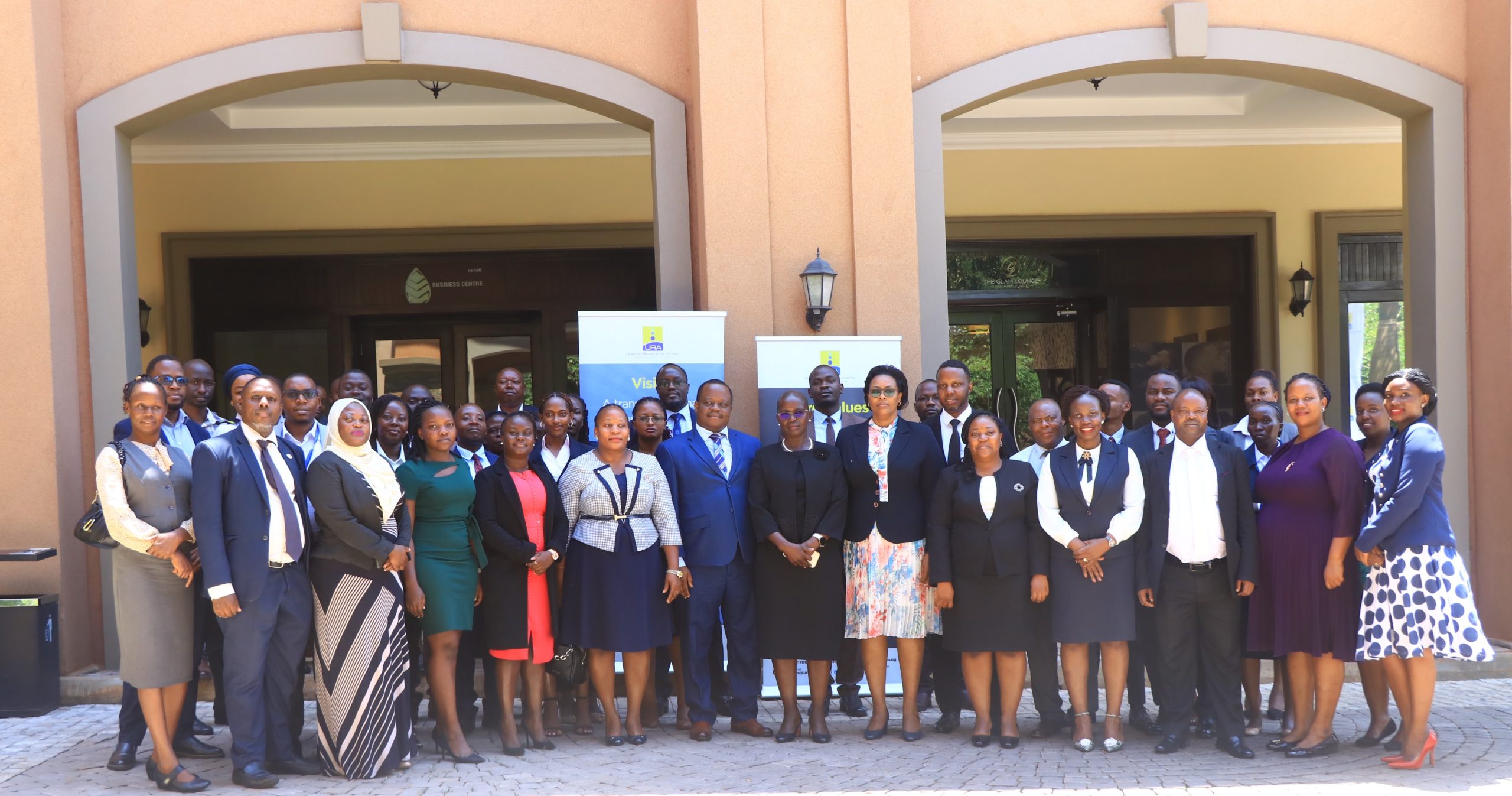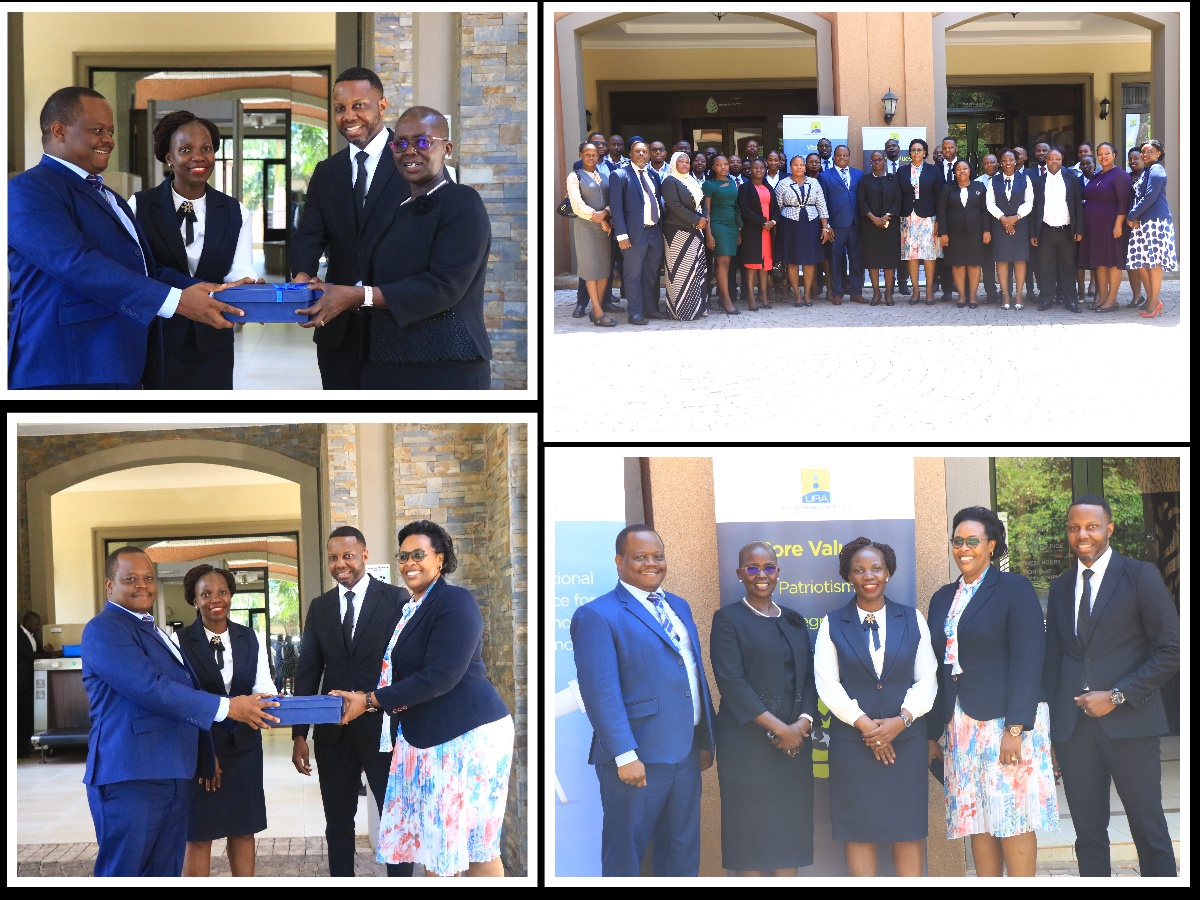
The Uganda Revenue Authority, Financial Intelligence Authority (FIA), Office of the Director of Public Prosecutions (DPP), Uganda Police, Uganda Wild Life (UWA), and IGG met at the Mestil Hotel Kampala at a symposium to forge ways of eliminating financial crimes in the country.
Under the theme “Enhanced Collaboration in the fight against illicit financial flows,” the meeting agreed on training and capacity building in gathering information and handling investigations, forensic investigations in economic crimes, quality data collection, collaboration, information sharing, setting civil laws for asset tracking and recovery, interstate collaboration, and setting a hostile environment for economic criminals.
Opening the symposium, the Director of Public Prosecution, Hon. Justice Frances Abodo, said that Uganda’s purpose is to strengthen the national task force to effectively coordinate an all-government approach to the crimes, which includes strengthening the capacity of institutions involved in the fight against money laundering and terrorism financing crimes.
She highlighted that Uganda is losing massive wealth to IFFs.
“Every year, we lose a massive volume of wealth to corruption, tax evasion, and money laundering enabled by IFFs. Uganda is losing it to trade mis-invoicing and corruption. We should turn all our guns to mis-invoicing,” said Abodo.
Representing the Commissioner General, Robert Mutebi, the Commissioner of Information Technology and Innovations said that IFFs are a restraint to revenue mobilization.
“Last year, we made strides in revenue collection. However, our achievements are somewhat curtailed by the pervasive challenges of illicit financial activities, such as invoice trading and money laundering. These activities not only erode our revenue base but also undermine the economic welfare of our nation.”
He urged prosecutors and investigators to be more vigilant.
“Your role extends beyond prosecution; it is about affirming the strength of our justice system and ensuring that those who seek to undermine it are held accountable.”
Robert stated, “Prosecutors dealing with corruption are in a very sensitive professional position, and therefore they must demonstrate absolute integrity and neutrality, acting independently of any kind of bias, preference, or factor, and guided only by the law. Prosecutors should also avoid any risk of undue pressure, be it external or internal.”
The Ag. Commissioner of Legal Services and Board Affairs, Stella Nyapendi, acknowledged that 27 prosecution licenses held by URA have enabled the team to handle 29 convictions and 92 cases of smuggling, invoice trading, and fraud in this financial year.
Stella said, “The effects of money laundering are far-reaching, cutting across tax evasion, illegal wildlife trade, smuggling, corruption, and terrorism financing at the extreme.”
Other areas include trade mis-invoicing, evading customs duties, value-added tax, income tax, or a corrupt public official using an anonymous shell (non-existent companies) to transfer unclean money to another country, a human trafficker carrying a briefcase of cash across the country, illegal mineral trade, and trafficking a member of a terrorist organization wiring money from one region to an operative in another region, among others.
The recently launched Uganda Police annual crime report 2023 has 12,924 economic crime and corruption cases.
IFFs defined
The global financial integrity think tank classifies illicit financial flows as illegally earning, transferring, and/or utilizing funds across an international border.
Challenges listed
According to Hon. Justice Frances Abodo, Uganda faces the problem of being a cash economy, hence the difficulty in tracking the flow of money, limited collaboration, and technological gaps.
“When you don’t have a cash economy, you can follow the money, but how do you follow the money that is under beds? How do you follow the money that is under mattresses?”
Abodo added, “We know that the people moving this money are very intelligent and well-connected. The institutions fighting this should be well-resourced; we should be two steps ahead of these fraudsters, but most of the time we are three steps behind them. These IFFCs are committed to using technology. Very few come across borders carrying money.”
She called for continuous training, leveraging technology, and utilizing informal contacts.
Uganda gets off the grey list
“By getting off the grey list, we can demonstrate that we are fighting money laundering, terrorism financing, and proliferation financing. We are not putting out the fire; we are ready to fight. We just need a political commitment,” said Ms. Aikiriza Esther Kagira the Manager Strategic Analysis and Statistics at the Ministry of Finance.
Other areas agreed upon are pooling ideas, resources, and energies together to devise innovative and effective strategies to combat financial crimes.
By Joshua Niyonshima, MMU/PCA





No Comments yet!